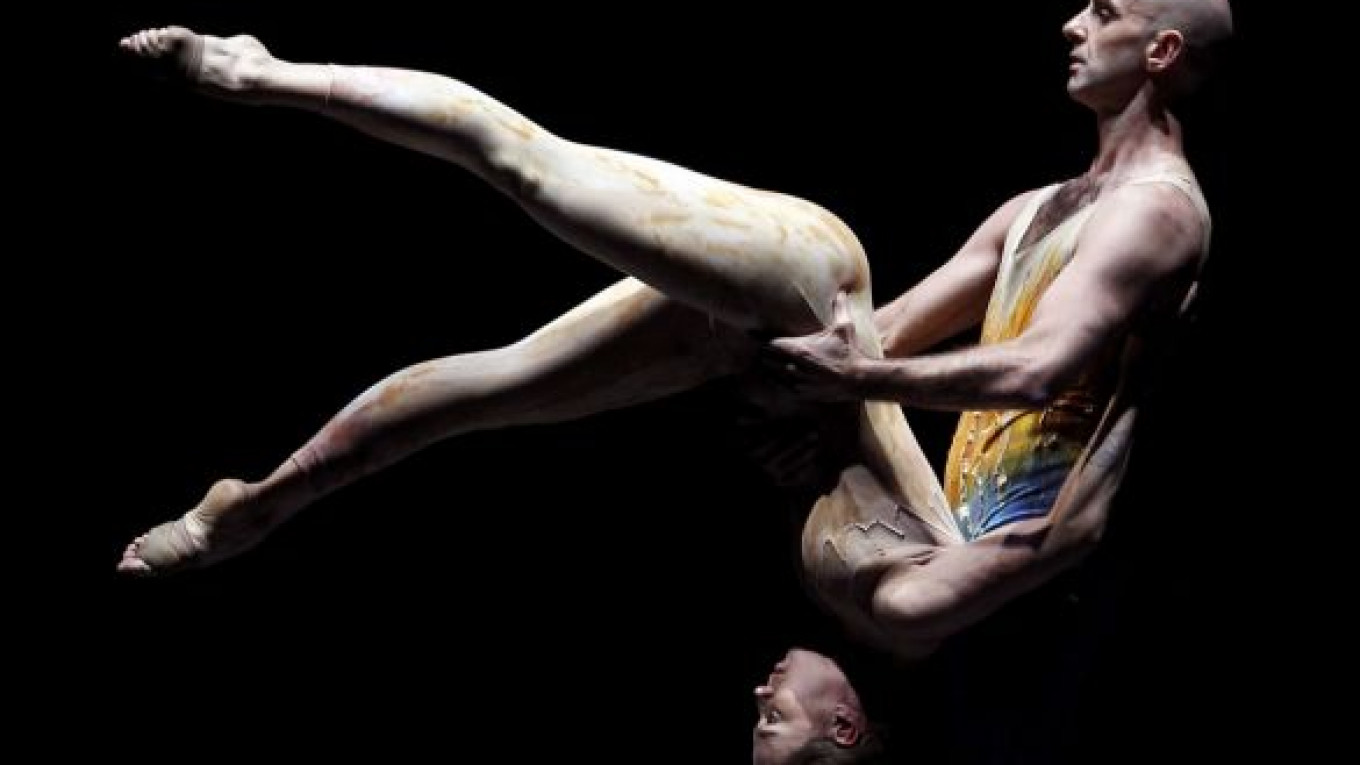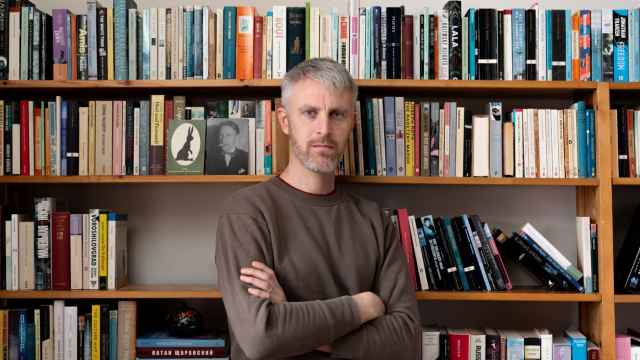One of the most prestigious prizes in the world of ballet, Benois de la Danse, celebrated its 20th anniversary last week at the Main Stage of the Bolshoi Theater with two evenings of dance, the first starting off with an awards ceremony and featuring some of this year's award nominees, the second given over in large part to appearances by past Benois award winners.
Taking the prize as best ballerina was Romanian-born Alina Cojocaru, who captured the same award eight years ago. Though Cojocaru's home company is London's Royal Ballet, her award on this occasion was bestowed for her performance as Julie in the Hamburg Ballet's production of "Liliom," which takes its plot from a once-popular play of the same name by Hungarian Ferenc Molnar that was used by Richard Rogers and Oscar Hammerstein II as the basis for their hit Broadway musical of 1945, "Carousel."
Best male dancer award went to Carsten Jung of the Hamburg Ballet, for his performance of the title role in "Liliom," and Mathias Heymann of the Paris Opera Ballet, for the role of Zael in "La Source," a recreation for that company by choreographer Jean-Guillaume Bart (a Benois laureate, as dancer, in 2000) of a work originally staged in 1866.
Award for best choreographer went to American Lar Lubovitch for his ballet "Crisis Variations," created for his own New York City-based Lar Lubovitch Dance Company.
Vying for best composer award, bestowed by Benois de la Danse on only one previous occasion, were two musicians of near legendary status, Michel Legrand (for the score of "Liliom") and Paul McCartney (for music commissioned by the New York City Ballet for a work called "Ocean's Kingdom"). The award went to 80-year-old Legrand, who was present to receive it and was greeted by the first evening's most prolonged ovation.
A lifetime achievement award was given to versatile Dutchman Toer van Schayk, who has excelled over the past half-century and more not only as a dancer and choreographer, but also as a sculptor and designer of stage sets and costumes.
Co-chairman of this year's jury, together with Benois founder and longtime Bolshoi ballet artistic director Yury Grigorovich, was John Neumaier, who next year celebrates his 40th anniversary as head of the Hamburg Ballet. Had Neumaier not been disqualified from nomination by his membership on the jury, his dance version of "Liliom" might well have added yet another best choreographer award to the one he received at the award's inauguration in 1992.
A wistful, witty love duet from "Liliom," impressively danced by Jung and, in the absence of Cojocaru, his Hamburg Ballet colleague Helene Bouchet (a 2010 Benois laureate), provided a display of Neumaier's choreography at its most alluring and emerged as the high point of the first evening.
Still more of Neumaier's work was seen at the gala performance. The section titled "What love tells me" from his "Symphony No. 3 of Gustav Mahler," as danced by Jung and Bouchet, seemed to have an even greater impact than at the Hamburg company's performance of the complete ballet during its Moscow appearance in April. A duet from Leo Delibes' "Sylvia," staged by Neumaier for the Paris Opera Ballet in 1997 and danced by that company's Laetitia Pujol (a Benois nominee this year) and Herve Moreau (a 2007 laureate), offered at least a good sample of how a gifted choreographer can breathe new life into a timeworn 19th-century classic.
Among the two evenings' other 18 numbers, I would single out four of particular distinction: "Interview With Isang Yun," a sensual duet danced live on the stage floor and simultaneously projected life-size on a screen above, created by Korea's Chung Eui-Sook, as choreographer, and Daniel H. Byun, as creative director (Benois co-nominees this year); "Opus 40," featuring choreography by Monte Carlo Ballet director Jean-Christophe Maillot (a 2008 Benois laureate) that gave full scope to the versatility of his company's leading ballerina, Bernice Coppieters (a Benois laureate last year), as deftly partnered by colleague Jerome Marchand; "Softly as I Leave You," a study in what seemed loneliness and neurosis, full of fascinating movement, by the noted choreographic team of Paul Lightfoot and Sol Leon (2004 Benois laureates) and brilliantly danced by American Drew Jacoby and Dutchman Rubinald Pronk; and the adagio duet from the "Diamonds" segment of George Balanchine's "Jewels," performed with supreme elegance by Mariinsky Theater prima ballerina Ulyana Lopatkina (a 1997 Benois laureate), in partnership with Mariinsky colleague Danila Korsuntsev.
Yevgenia Obraztsova (a Benois nominee this year), who left the Mariinsky at the beginning of 2012 to join the Bolshoi, once again proved herself a very worthwhile Bolshoi acquisition, closing the first evening with a sparkling performance in the pas de deux from Ludwig Minkus' "Don Quixote" and eloquently opening the second in the pas de deux from Pyotr Tchaikovsky's "Sleeping Beauty."
A Message from The Moscow Times:
Dear readers,
We are facing unprecedented challenges. Russia's Prosecutor General's Office has designated The Moscow Times as an "undesirable" organization, criminalizing our work and putting our staff at risk of prosecution. This follows our earlier unjust labeling as a "foreign agent."
These actions are direct attempts to silence independent journalism in Russia. The authorities claim our work "discredits the decisions of the Russian leadership." We see things differently: we strive to provide accurate, unbiased reporting on Russia.
We, the journalists of The Moscow Times, refuse to be silenced. But to continue our work, we need your help.
Your support, no matter how small, makes a world of difference. If you can, please support us monthly starting from just $2. It's quick to set up, and every contribution makes a significant impact.
By supporting The Moscow Times, you're defending open, independent journalism in the face of repression. Thank you for standing with us.
Remind me later.






